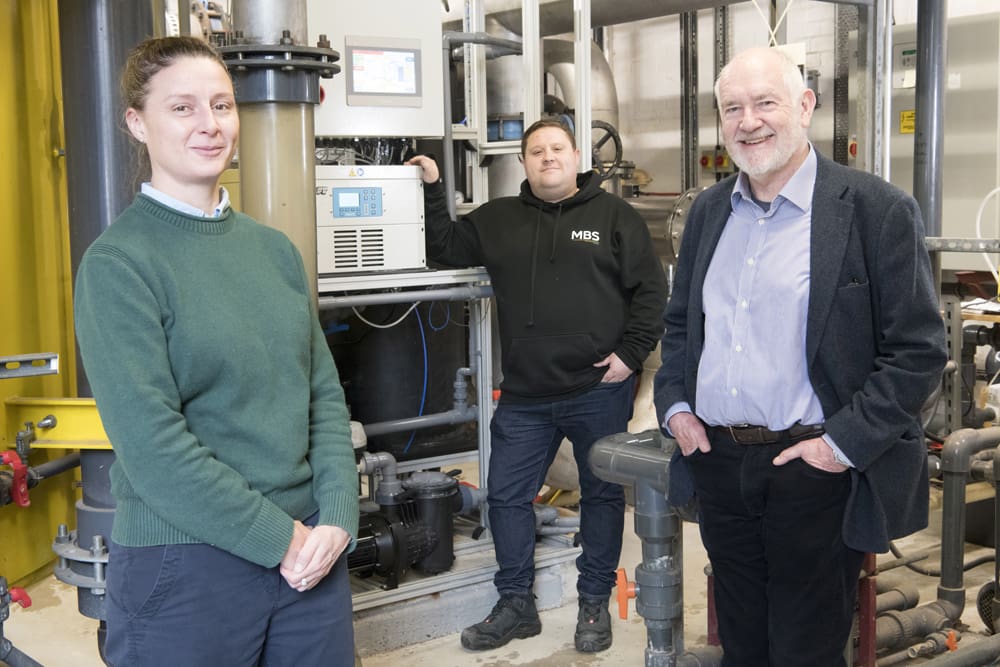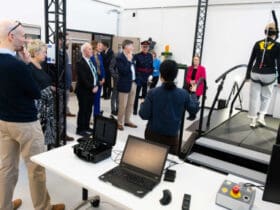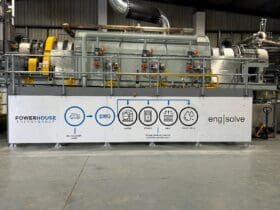Leisure centres in the UK have been thrown a lifeline thanks to a carbon-cutting scheme which is predicted to save one ‘valued community asset’ £10,000 annually.
Babergh District Council and Abbeycroft Leisure have benefitted from a decrease in energy consumption due to the installation of an innovative warm water recovery system at its swimming pool in Sudbury, significantly reducing its bills.
Welsh water treatment firm Pwlltec has conserved 2,000 tonnes of water and 47MWh in energy at Kingfisher Leisure Centre during the year-long pilot scheme, the first of its kind worldwide.
Instead of disposing of heated wastewater after it passes through the pool filters, the system recycles this supply while retaining its temperature, avoiding the extra cost of adding new water and warming it to the required temperature, using very little energy.
The installation has reliably maintained quality and public health whilst significantly lowering energy consumption and saving 15 tonnes of CO2 in its first year.
Abbeycroft operations director Tracey Loynds said: “Leisure centres nationwide have been on their knees due to rising bills, so being part of this project to safeguard our valued community asset is an honour.
“The Pwlltec team explained the technology clearly and concisely, while quietly operating it in the background with little disturbance to our visitors.
“It’s expected that we will receive our return on investment in less than three years, with the system needing very little maintenance as it is fully automated and can be operated remotely.
“In addition, the environmental impact of the scheme will be felt long into the future since the savings made can be re-distributed to ensure energy security across our centre, such as installing air source heat pumps.
“We hope its success will inspire more organisations to reduce waste in this way.”
With applications open for Sport England’s swimming pool support fund, which provides £60 million to local authorities to assist public leisure, Pwlltec director John Bostock is encouraging councils to consider the installation for long-term protection.
He said: “The recovery system is the first of its kind across the globe and we have been incredibly impressed with the results, which will help ensure community facilities stay afloat by reducing their carbon footprints.
“There is also potential for filter performance to be further enhanced at the centre, as lower energy use could lead to more frequent cleaning of the water, resulting in improved swimming conditions.”
John added: “Like with the traditional pool treatment, the system uses coagulation, filtration, and ultraviolet, so there’s no additional chemical procedure at work, and all bacteria is eliminated.
“The final product meets the industry standard when being fed back into the pool, whilst ensuring less new water is introduced, reducing chemical use.
“The technology doesn’t have to be limited to just swimming baths, and there is scope to expand into other commercial ventures such as hotel and gym showers as well as rainwater harvesting at centres like Sudbury.”
Colchester Council’s sustainability and climate change manager Simon Davison, who oversaw the project during his role as senior environment manager at Babergh District Council, added: “Pools are incredibly expensive to run and they are usually the first resource to be cut amid budget pressures.
“Making energy savings and driving sustainability through this technology will make a huge difference to local authorities trying to keep costs low and should be a priority when it comes to protecting public leisure.”
Councillor Daniel Potter, cabinet member for environment at Babergh District Council, said: “As a council we understand the impact that climate change is having on our environment, since reaffirming the climate emergency this year in the new administration, and want to lead the way when it comes to reducing carbon emissions.
“With leisure centres being one of the largest sources of CO2e for the council, we are keen to embrace innovative new schemes to tackle those emissions.
“These measures form a crucial part of our ambition to become carbon neutral by 2030 while also showing our commitment to our communities and their health and wellbeing.”
Pwlltec’s recovery system for commercial swimming pools has stemmed from its founders’ work on electrochemical treatment, developing the technology to initially remove metals from mine water runoff as well as treating agricultural waste.








Leave a Reply
View Comments